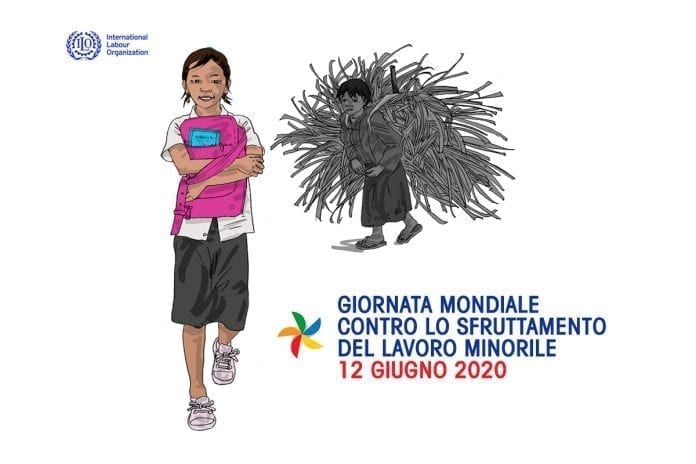Rome (Italy) On June 12, 2020, the World Day against the exploitation of child labor is celebrated, established in 2002 by the International Labor Organization (ILO), a specialized agency of the United Nations that deals with promoting internationally recognized social justice and human rights, especially those relating to work.
This year’s theme – COVID-19: Protecting children from child labor, now more than ever – recalls the situation that the world is experiencing. The socio-economic consequences of the Covid-19 Pandemic also have an impact on the lives of boys and girls, who are the most vulnerable.
Currently, it is estimated that 152 million children are exploited by the world job market, of which 72 million are employed in dangerous jobs.
Don Bosco and Mother Mazzarello believed in the importance of work, also for having experienced it as active collaboration in their families of origin, and they transmitted it as a legacy to the Institute of the Daughters of Mary Help of Christians, whose educational mission considers work as an expression of citizenship and social responsibility.
“Work is what makes the human being similar to God, because with work the human being is creator, capable of creating, of creating many things. (…) Work has goodness within it and creates the harmony of things – beauty, goodness – and involves humans in everything: in their thought, in action, everything “ (Homily of Pope Francis, 1 May 2020).
In the world, one in ten children is employed in child labor. Minors are considered exploited when they are too young to work, when they are treated like slaves, employed in work environments harmful to psycho-physical health, and in dangerous activities that can compromise their physical, mental, social, and educational development. In many contexts, one in four children (5 to 17 years old) is employed in work considered harmful to their health and growth. Underage workers are mainly exploited in agriculture (71%), fishing, forestry, cattle breeding, and aquaculture; they are also involved in the service and industrial sectors, in mining.
In the General Audience of 12 June 2013, Pope Francis says: “All children must be able to play, study, pray, and grow up in their families, and this in a harmonious context of love and serenity. It is their right and our duty. Instead of making them play, many people enslave them: this is a plague. A serene childhood allows children to look confidently towards life and tomorrow. Woe to those who suffocate in them the joyful momentum of hope! ”
The boys and girls exploited at work are denied the rights to life, freedom, expression, protection from abuse, violence or neglect, to health, education, play.
The Institute of the Daughters of Mary Help of Christians responds to the need for hope and life of many minors by promoting: Reception works for children, adolescents, and young people in at risk situations; through accompaniment and school recovery, training in the acquisition of different skills and competences, an environment in which they find a welcoming place with a family dimension, of integral growth so that children, adolescents, and young people can gradually reunite with their own family and become part of society.
The situation of the Covid-19 Pandemic stimulates the Educational Communities of the FMA Institute to reflect on the signs of labor exploitation in society and in the territory.
In the General Audience of 10 June 2020, Pope Francis made a strong appeal not only to the institutions but to all peoples: “Children are the future of the human family: we all have the task of promoting their growth, health, and serenity!”
One of the points of Objective 8 (Decent work and economic growth) of the 2030 Agenda for sustainable development regards child labor: Take immediate and effective measures to eliminate forced labor, to end modern slavery and trafficking in human beings, and to ensure the prohibition and elimination of the worst forms of child labor, including the recruitment and use of child soldiers; by 2025 put an end to child labor in all its forms (8.7).




















